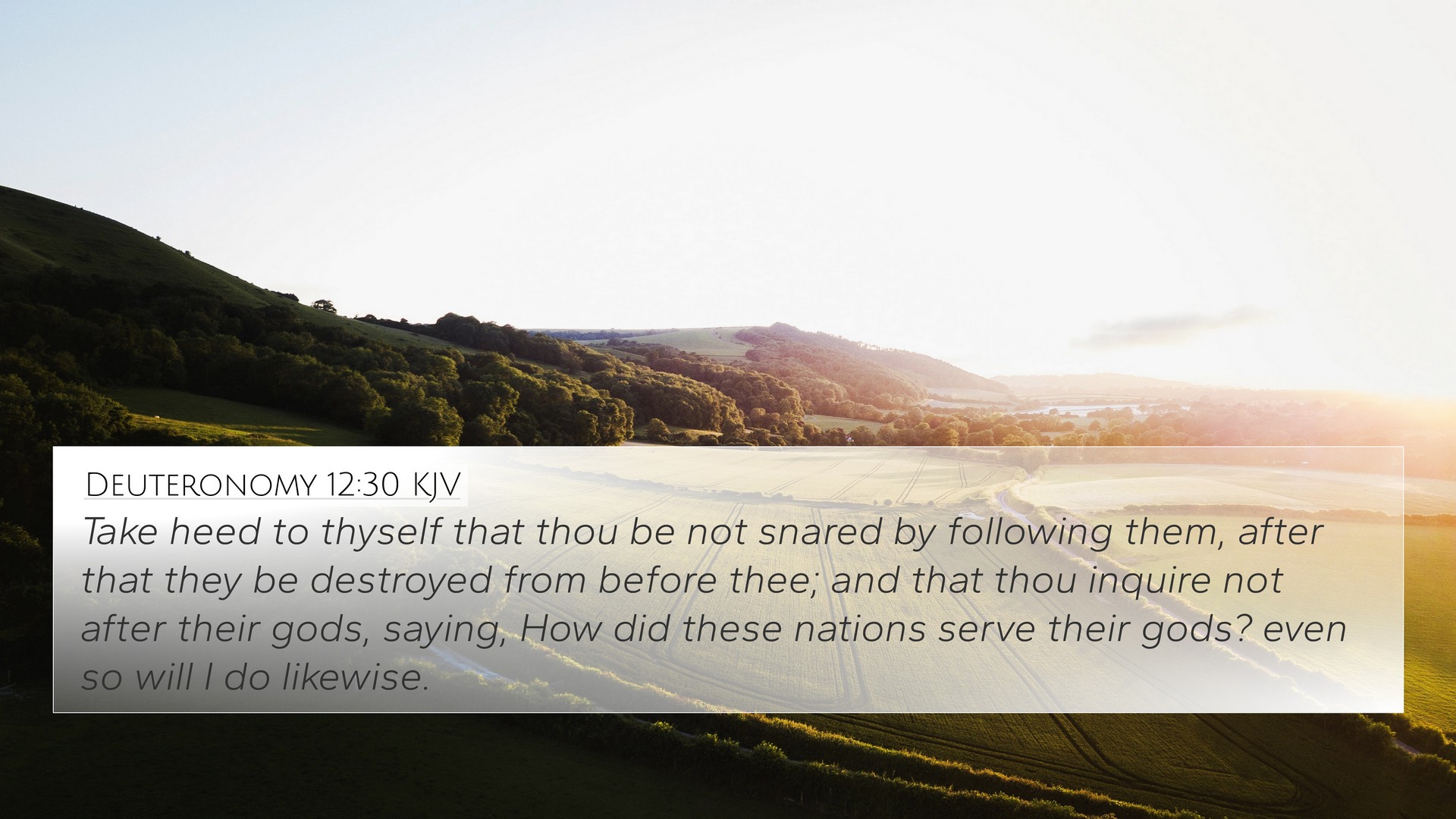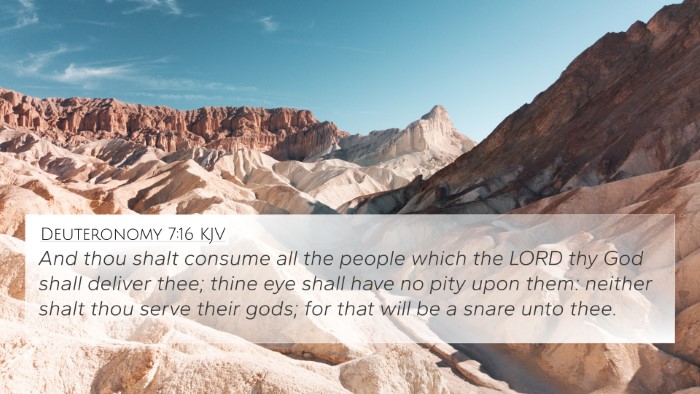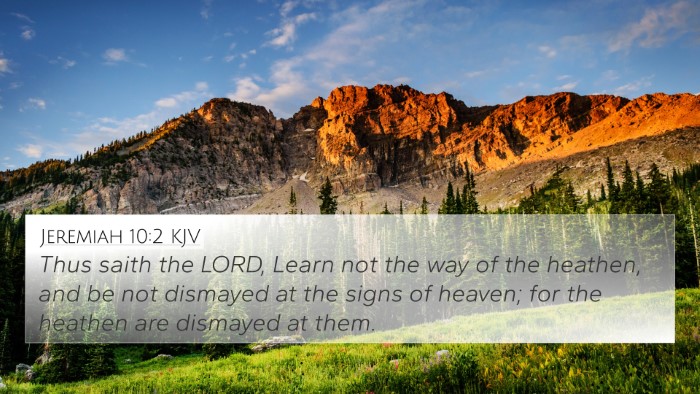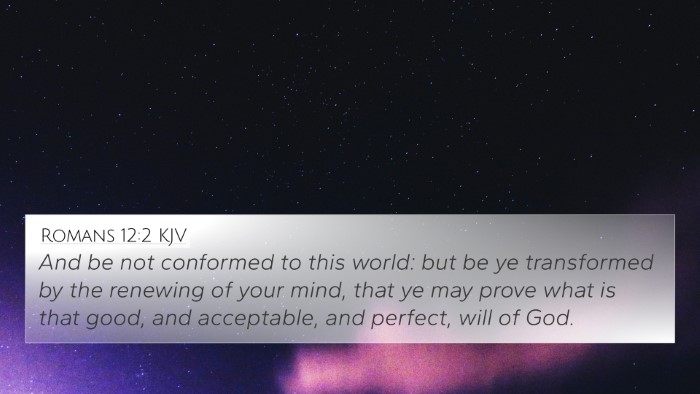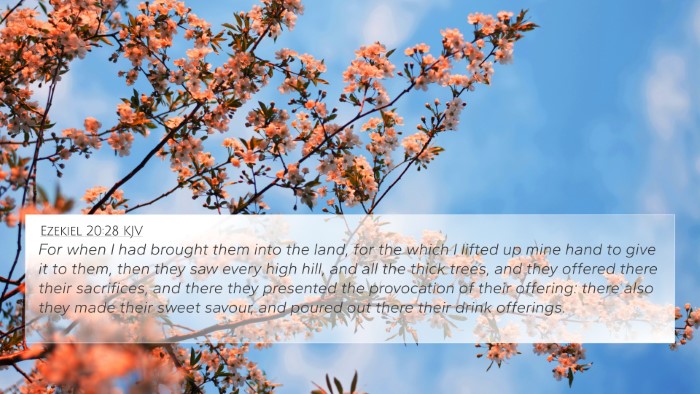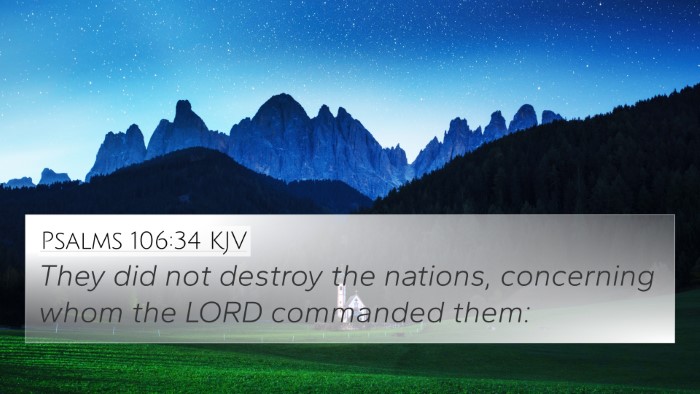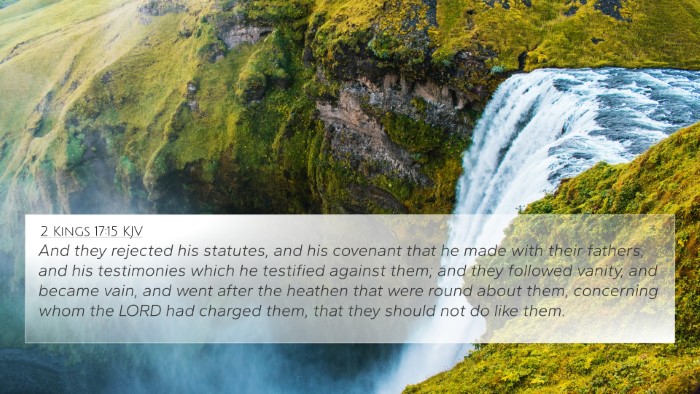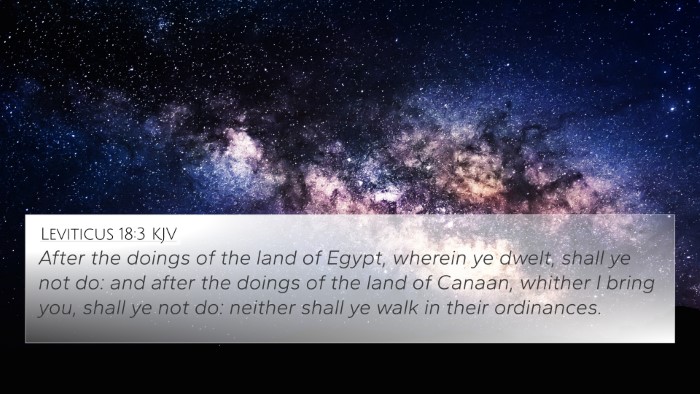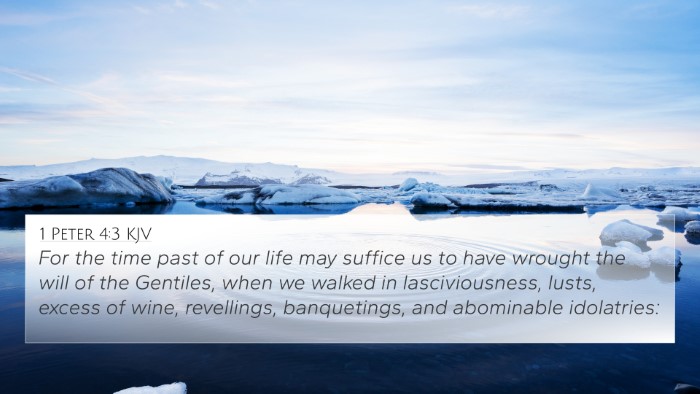Meaning of Deuteronomy 12:30
Deuteronomy 12:30 states:
"Take heed to thyself that thou be not snared by following them, after that they be destroyed from before thee; and that thou inquire not after their gods, saying, How did these nations serve their gods? even so will I do likewise."
Contextual Overview
This verse is part of a broader discussion in the Book of Deuteronomy where Moses instructs the Israelites on the importance of worshiping the one true God and avoiding the false practices of surrounding nations. The Israelites are warned against being influenced by the idolatrous customs of the people they would encounter in the Promised Land.
Summarized Commentaries
Insights from noted public domain commentaries provide depth to our understanding of this verse:
-
Matthew Henry:
Henry emphasizes the necessity of vigilance in faith. He highlights that God's people must guard themselves against adopting the corrupt practices of non-believers.
-
Albert Barnes:
Barnes elucidates the danger of curiosity leading to idolatry. He notes that the Israelites should not be tempted to explore other nations' worship as it may lead them astray from their commitment to God.
-
Adam Clarke:
Clarke discusses the cultural significance of the practices of surrounding nations and warns against overly questioning or analyzing their worship methods as it may incite adoption of those practices.
Thematic Connections
This verse connects deeply with several themes in the Bible, focusing on the dangers of idolatry, the call for loyalty to God, and the pursuit of true worship. Here are some related themes:
- **Idolatry and its Pitfalls:** A recurring theme throughout the Scriptures.
- **The Necessity of Obedience:** A direct command emphasized across various books of the Bible.
- **Faith and Loyalty to God:** True devotion as an ongoing biblical principle.
Bible Verse Cross-References
Here are some Bible verses that relate to Deuteronomy 12:30:
- Exodus 23:24 - "Thou shalt not bow down to their gods, nor serve them." This verse stresses God's command to avoid idolatry.
- 1 Kings 18:21 - "How long halt ye between two opinions? If the Lord be God, follow him; but if Baal, then follow him." Here, the necessity of commitment to God is underlined.
- James 4:4 - "Friendship of the world is enmity with God." This New Testament counterpart reflects the dangers of cultural influences.
- Matthew 6:24 - "No man can serve two masters." This verse reflects the singular devotion required to God.
- Exodus 34:12 - "Take heed to thyself, lest thou make a covenant with the inhabitants of the land." Another warning against forming bonds with idolaters.
- Jeremiah 10:2 - "Learn not the way of the heathen." Further admonition against imitating surrounding nations.
- Romans 12:2 - "Be not conformed to this world: but be ye transformed." An encouragement for believers to resist worldly influences.
Understanding the Verse in a Broader Context
When reflecting on Deuteronomy 12:30, it's crucial to consider the historical and spiritual context:
-
Historical Context:
The Israelites were on the brink of entering the Promised Land, and Moses was reiterating the importance of staying true to Yahweh, especially when confronted with foreign cultures.
-
Spiritual Context:
This teaching underscores God's desire for His people to remain faithful and to avoid syncretism—the blending of different religious practices.
Practical Applications
The teachings derived from Deuteronomy 12:30 have practical relevance today:
-
Discernment:
Believers are called to exercise discernment in the face of popular culture and trends that may contradict their faith.
-
Faithfulness:
Staying committed to biblical teachings amidst societal changes is crucial for spiritual integrity.
Conclusion
Understanding Deuteronomy 12:30 involves recognizing the importance of devotion to God and the dangers of idolatry. The themes and cross-references highlight a consistent biblical narrative that emphasizes loyalty to God's commandments while warning against external influences. These insights can aid in personal study, sermon preparation, and in fostering a deeper faith.
Cross-Referencing Strategy
For those exploring how to find cross-references in the Bible, tools such as a Bible concordance or a cross-reference Bible study guide can be beneficial. Implementing methods of cross-referencing can encourage a holistic understanding of interconnected biblical texts.
